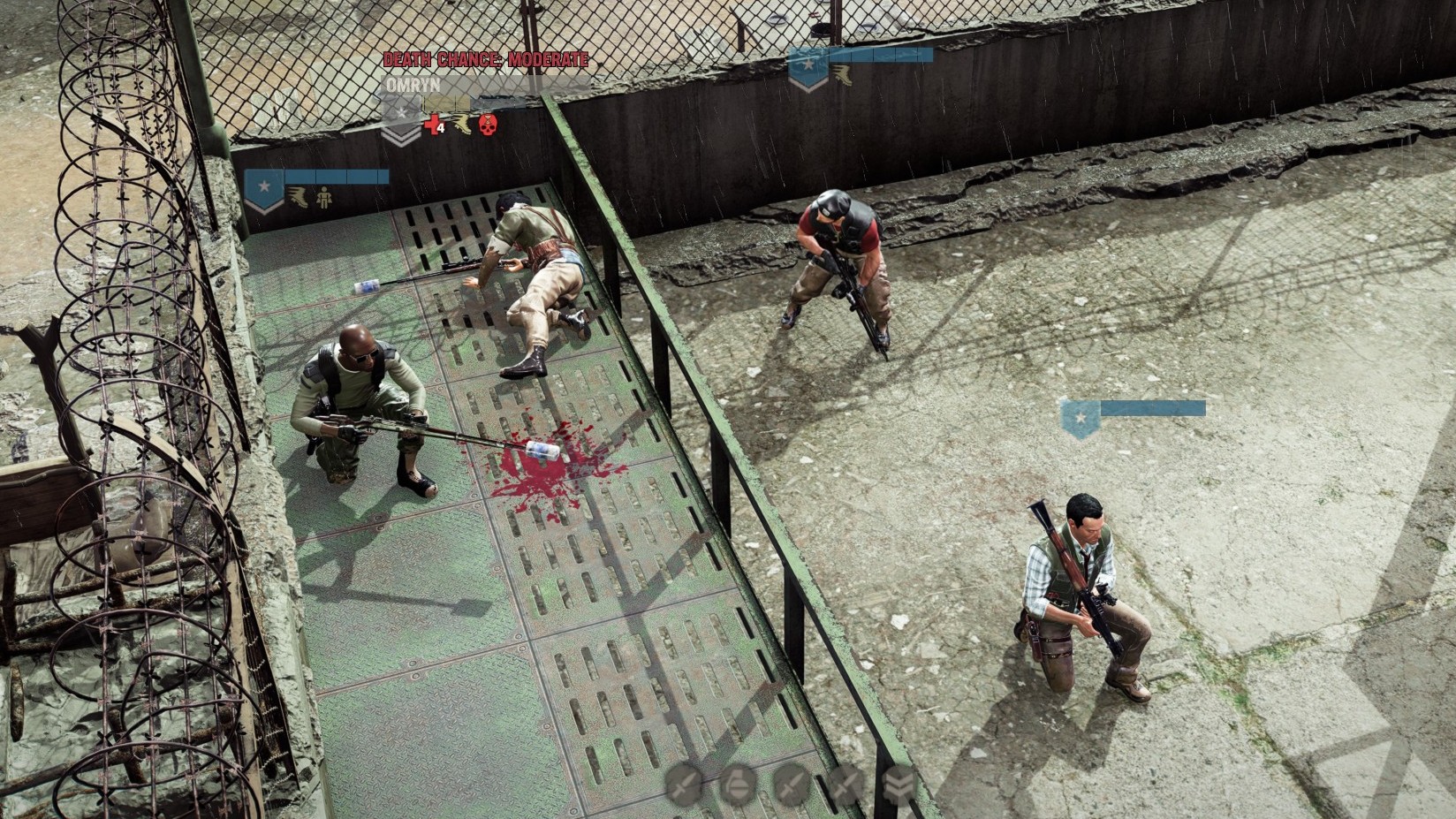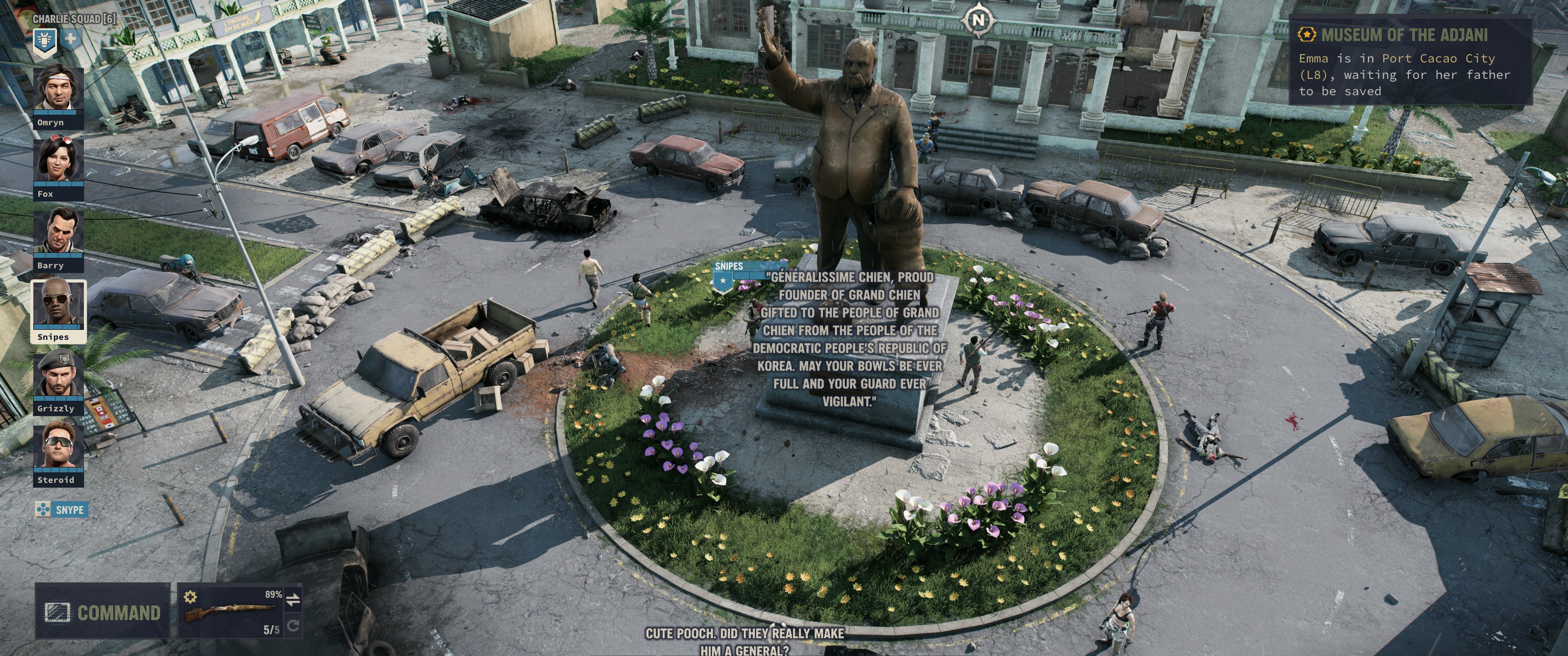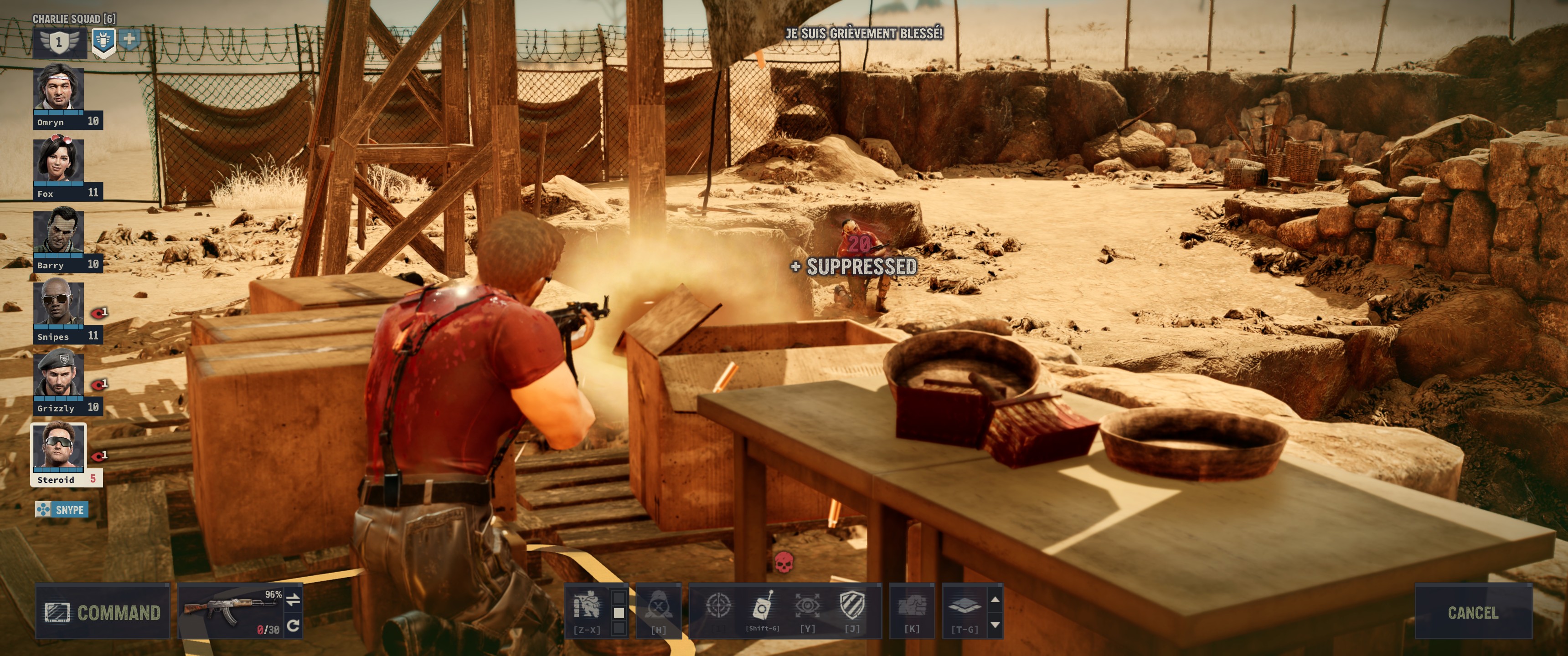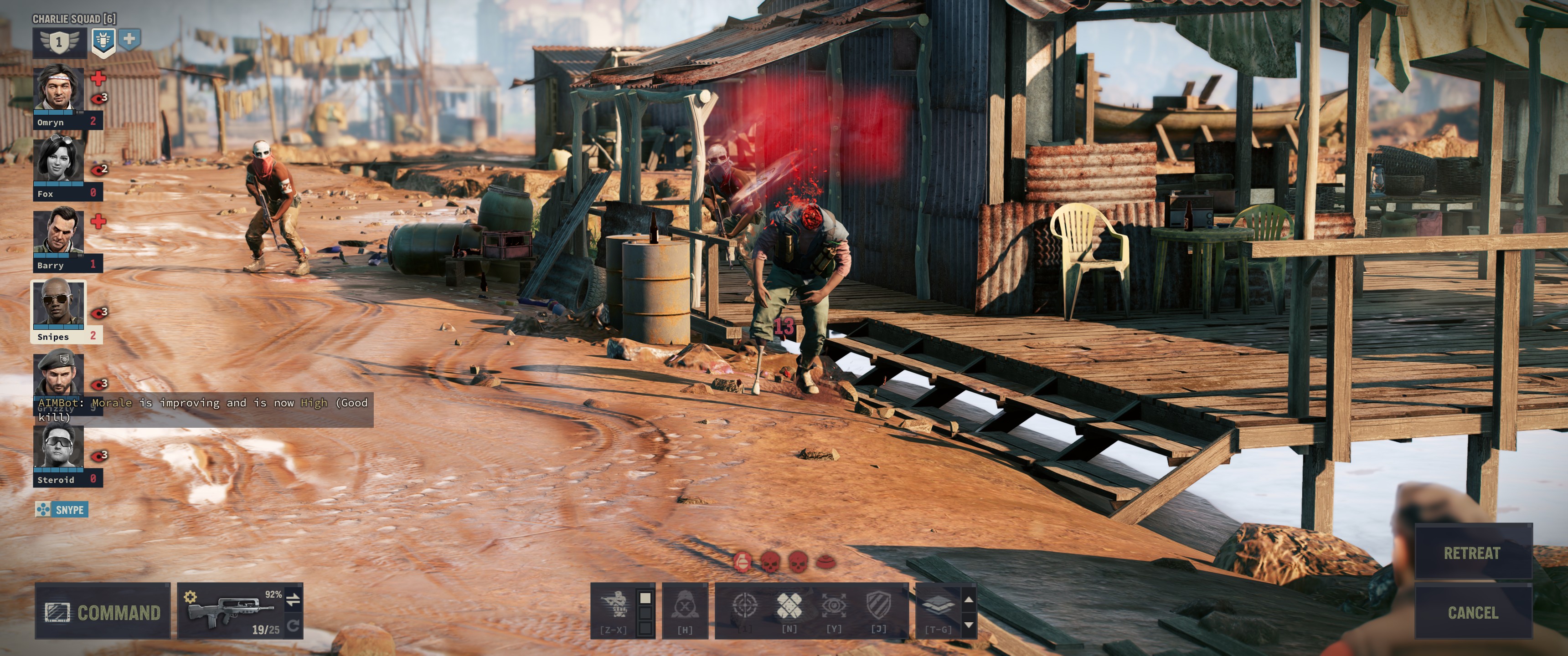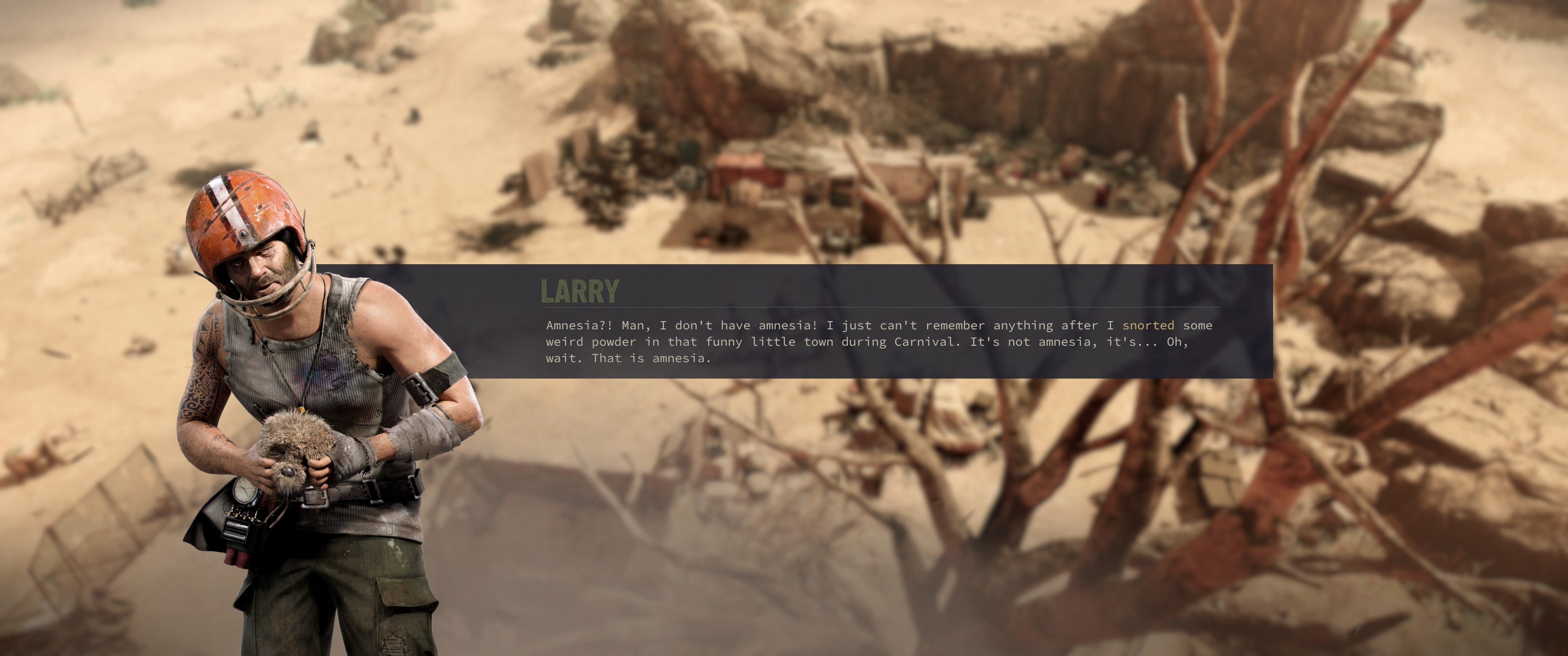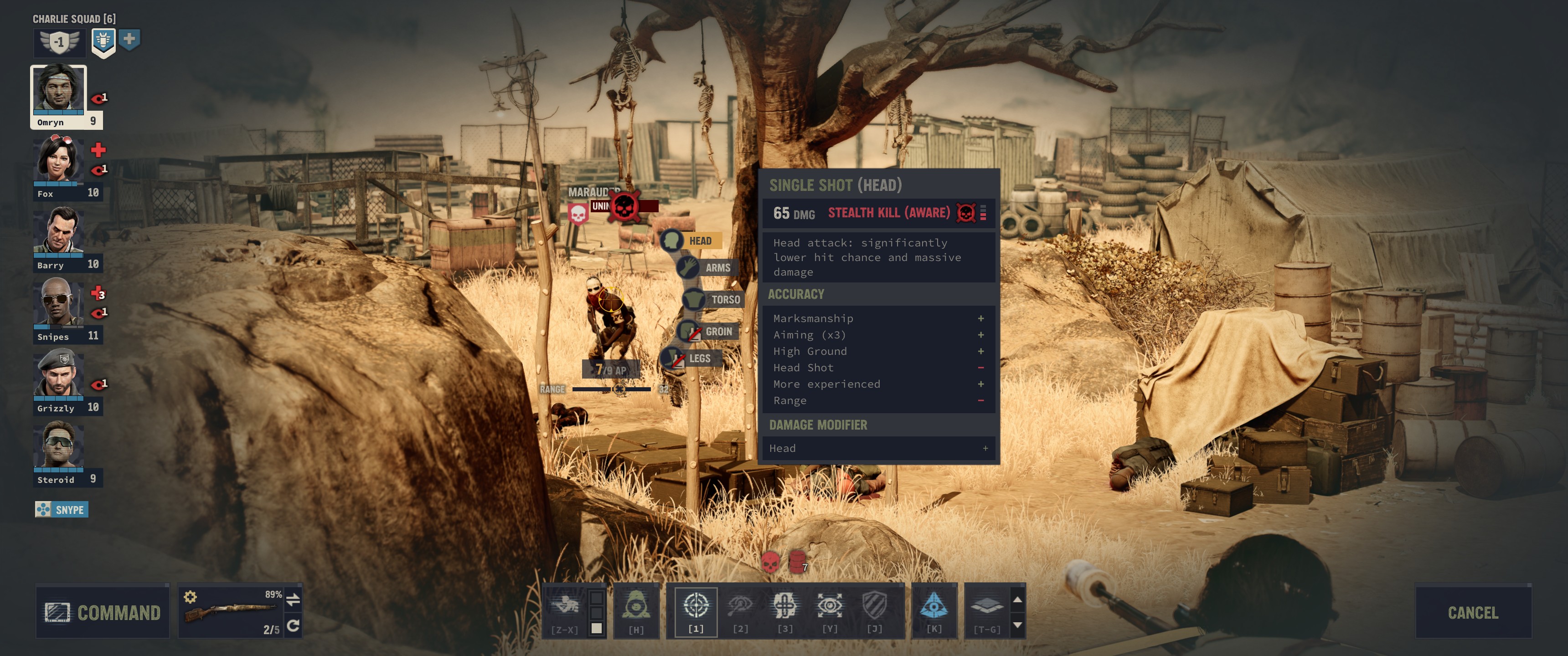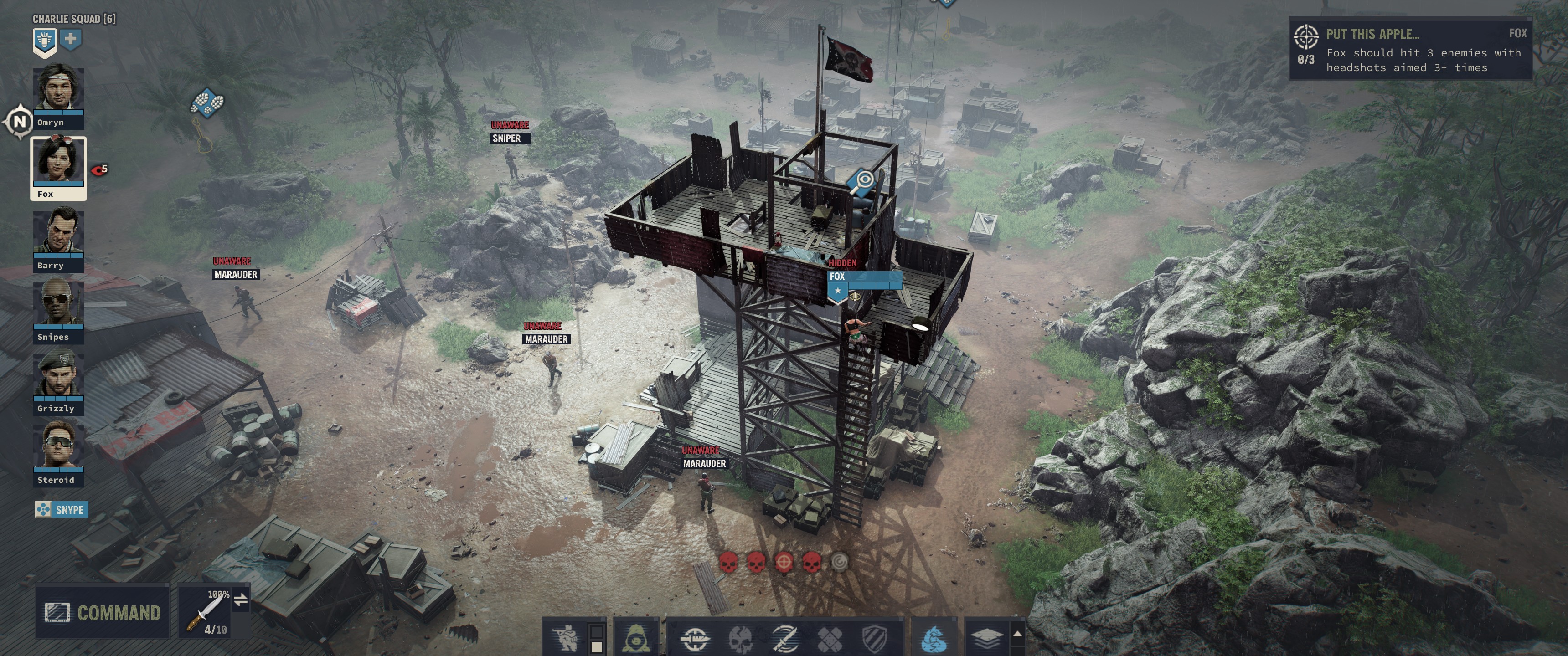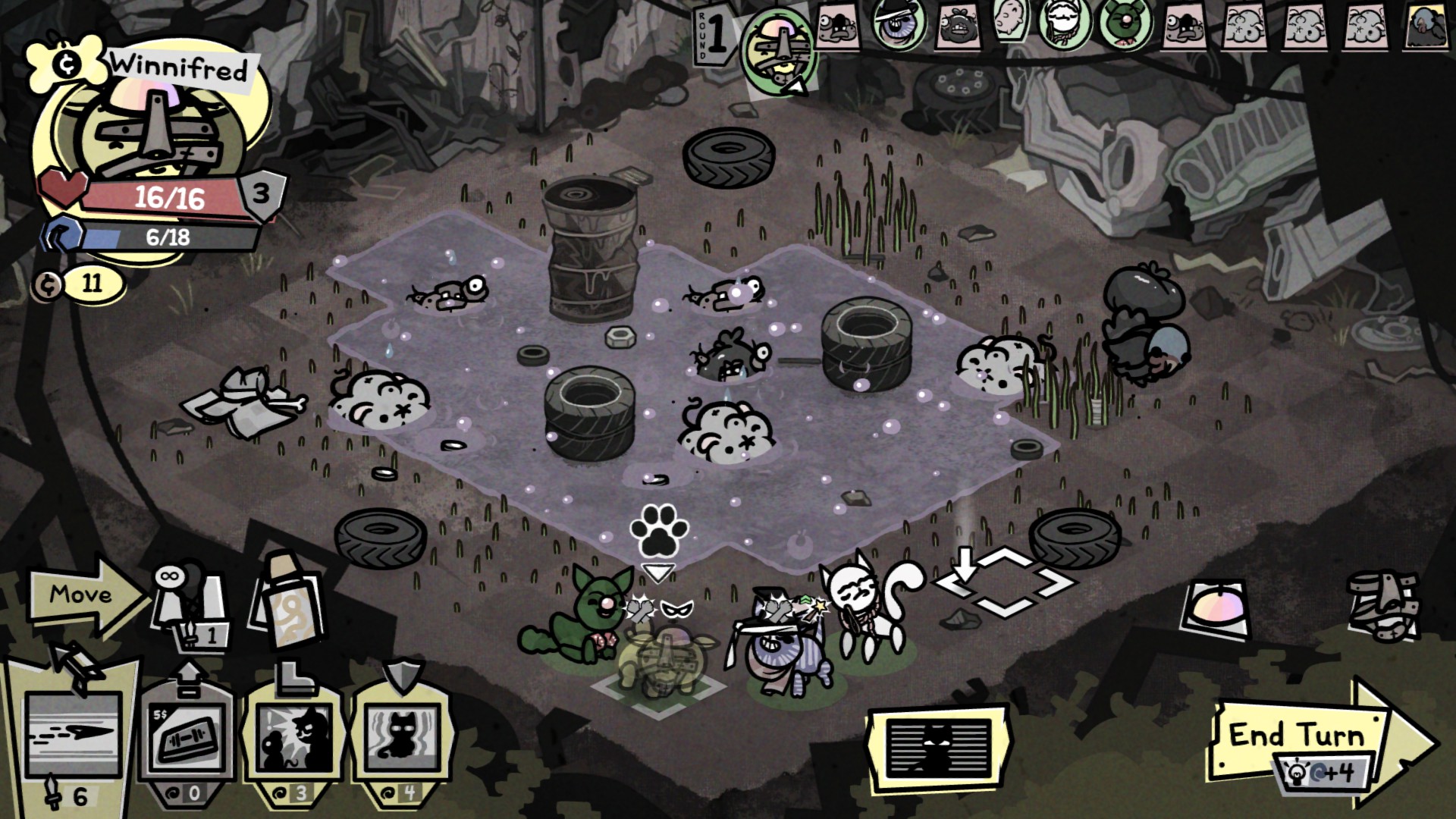Our Verdict
There's a few bolts that could be tightened up here and there, but Jagged Alliance is back in business.
PC Gamer's got your back
What is it? A massive modern-day squad tactics RPG with 90s action movie soul
Release date July 14, 2023
Expect to pay $50/£40
Developer Haemimont Games
Publisher THQ Nordic
Reviewed on RTX 4090, Intel i9-13900k, 64GB RAM
Steam Deck TBA
Link Official site
After nearly a quarter-century, Jagged Alliance is kicking my arse again, and I couldn't be happier. Poor luck, hubris, cheaping out on mercenary contracts plus a drizzle of enemy mortar fire has ended a 25-hour campaign with little chance of recovery. I'm not even mad—that was a spectacular last stand. I know what I did wrong. I start again, hiring an all-new team. This time it'll be different.
While XCOM has become synonymous with squad tactics, I've always carried a torch for Sir-Tech's 1999 gem Jagged Alliance 2. A heady, high-simulation mix of tactical gunfights, strategic mercenary management and RPG dialogue, sidequests and looting. It was also bloody hard, but frustration was kept low through learnable depth of combat and a deeply irreverent tone halfway between The A-Team and Commando, riffing off action movies of the era.
Until now, nobody has recaptured that spark. The darker, edgier and joyless Jagged Alliance: Rage! felt like the end. Thankfully, Tropico developers Haemimont Games had other ideas. Even though squad tactics aren't their usual wheelhouse, I'm happy to say that Jagged Alliance 3 modernizes and streamlines while still capturing the original's spirit. It's old-school at heart, and goofy as ever.
Taking place just a couple years after the '90s original, JA3 is set in the former French African colony of Grand Chien (translated: Big Dog), rich in diamond mines and opportunists. A local warlord has kidnapped Grand Chien's president, and his daughter wants you to lead a squad of bad enough dudes/dudettes to liberate him and possibly the country too. Unfortunately, with only $40,000 you'll be calling on the B-Team. I wouldn't have it any other way.
Most of JA2's mercenaries return here, plus a handful of newcomers, which means you'll have a multinational bunch of misfits to pick from. While the jokey tone and scenery-chewing performances may turn some off, I feel it's fundamental to the experience, and provided me plenty of chuckles. Unlike your average tactics game, every merc is a fully realized RPG party member, with around 36 available for hire, and a few more to pick up in the field. Some are professionals, some are dumbasses and almost all are likable.
While the new voice cast have impressively nailed the returning characters, I liked the newcomers too. Special credit to Leili 'Livewire' Idrisi, a cheerful young Pakistani engineer. Good for repairing gear, offering people snacks on long trips and also hacking devices using her custom PDA; a permanent inventory item that the game notes is covered in cute stickers.
Every character gets plenty of voiced chatter, in combat and out, often interjecting in conversations with NPCs. Some have friends and rivals they'll banter and beef with, and with 4-6 making a squad, there's enough to play the campaign repeatedly with entirely different vibes.
Keep up to date with the most important stories and the best deals, as picked by the PC Gamer team.
Projectile motion theory
Combat in JA3 splits the difference between its predecessor's simulation-heavy approach and modern XCOM's more readable battlefields and systems. Movement is action point based, affected by agility stats, morale, degree of rest and other factors, but it's visually intuitive. The movement grid shows a 'blue' move radius where you'll have enough AP to shoot from. If you've played a modern tactics game it's easy to jump in and start, but the process of putting bullets in bad guys is far more granular than a dice-roll.
Each bullet is a physical object leaving the gun's barrel, traveling towards a target. If it hits anything along the way (a rock, wall or bystander) they'll do their damage there instead. There's no to-hit percentages, just an aiming cone based on gear and stats. Spending extra action points to aim tightens it up (a flashing yellow crosshair indicating that you're almost certain to hit), giving fights a naturally intuitive feel.
Unless broken, cover stops bullets, but limbs poking out can be hit by stray fire or individually aimed at. Headshots are lethal, arm shots hurt accuracy and leg shots slow. A stray bullet can cause a lot of grief, encouraging cautious movement, swinging the camera around to make sure everyone's behind cover. Armor helps, but it wears down, forcing you to spend precious time between fights assigning mechanically minded mercs repair duty.
A lot of JA2's more fiddly elements have been shaved down. While enemies can be snuck up on (and taken down) during the real-time infiltration phase before the shooting starts, once turn-based combat begins all characters have 360 degree vision and facing isn't taken into account to shoot. JA2's Stamina and Morale bars are replaced by simple buffs and debuffs. Honestly, I don't miss them, and there's interesting systems to fill those gaps.
Every merc now has a unique ability—some passive (engineer Barry Unger builds a few custom shaped throwing charges), some active (steppe hunter Yuri Omryn has 360 degree overwatch), giving combat a different feel for every party. Each weapon type has a perk too. SMGs spray defensively while moving, machine guns dig in for accurate overwatch and so on. There's less micromanagement in combat, but more tactical options giving JA3 its own feel.
Rambo Quest 64
Each time I play the game I learn a little bit more. There's real depth here.
The strategic and RPG layers are what really set Jagged Alliance apart. Grand Chien is an explorable open world, with towns full of mostly French-accented NPCs, many with side-quests. There's diamond mines to capture for income, forts that spawn forces to recapture territories, ports for faster water movement and other strategic concerns. On the map, mercs can spend time to heal each other, train local militia (adding allied grunts to territories you want defended), craft ammo, repair gear and modify weapons using parts scavenged from breaking down unwanted guns.
Knowing what to do at any given time is initially difficult, and you can only really learn through feeling your way through it. While the campaign is lengthy and non-linear, over time enemy aggression gradually ramps up, story events can force you into battles you weren't planning for, and dawdling causes mines to dry up, leaving you cash starved. While it's relatively easy to replace lost mercs, too many setbacks can cause a doom-spiral. Potentially frustrating, but each time I play the game I learn a little bit more. There's real depth here.
One area where JA3 stands head and shoulders above its predecessors is its world map. Every square on the map is a bespoke battlefield, often with underground areas and loot-caches to find. There's a lot of interesting verticality, and maps have a set of annotations gained from scouting or hacking for intel, indicating vantage points or patrol routes. It makes Grand Chien feel like a country, rather than just abstract tiles. It's also a handsome-looking game. The battlefields are detailed and gorgeously lit, with weather and time-of-day looking great and having statistical effects on combat.
Even on 'Normal' difficulty, Jagged Alliance 3 is complex and challenging, with overconfidence and underspending capable of kneecapping progress. While enemies aren't especially smart (they're Hollywood goons, after all), a single crit from a sniper or a full-auto burst from an assault rifle can ruin a merc's day, and you'll almost always be outnumbered. There's also toggles to enable Ironman mode and have mercs just drop dead at zero health instead of going into a recoverable bleeding state, for the more masochistic amongst us.
I'm sure there are players who'll waltz through the campaign (there's even an achievement for completing the game with just one character), but for my next run I'm enabling Forgiving Mode, the one difficulty-lowering option. Giving you a small daily income and reducing the time and resources spent recovering between fights does nothing to mitigate damage in combat, but it'll let me play a little more aggressively. A good set of training wheels for newcomers (or rusty vets), but still tougher than most tactics games at their lower settings.
Jagged Edges
There's some areas where JA3 falls short of its predecessor. The fake retro internet you could browse has been heavily truncated, with cute elements like taking out life insurance policies, a mercenary obituaries site and even ordering flowers for your arch-enemy sadly gone. The Institute For Mercenary Profiling (IMP) site is still up, and taking their tongue-in-cheek personality quiz lets you generate a single (entirely optional) custom character. Well worth doing, as what they lack in personality, they make up for in working pro bono.
Another flaw is the UI in general. I often found the tooltips and stat blocks shown in combat intrusively chunky, leaving me wishing they were half the size. The same applies to inventory screens, requiring scrolling through your merc's highly detailed backpacks and stashes, with no auto-sorting or cleanup options. It's overly fiddly without good reason and can turn re-equipping an entire squad into a chore.
While the battlefields are gorgeous and each merc has a distinct character model (unaffected by armor worn), there's a few areas where it's clear that this isn't a mega-budget production. Character animations can be a little stiff (especially knockdown animations from shotguns and explosives), and gore effects look a bit cheap, with blood looking more like someone spray-painted wounded characters bright red. It's nitpicking, but other recent games have done better.
Those flaws take some luster off this otherwise excellent strategy RPG, but only enough to downgrade it to a strong recommendation to genre veterans. Haemimont have promised extensive mod support shortly after launch, letting players create new maps, characters, gear and even new stories. By the time I've cracked this campaign, there'll be even more battles to fight. I can't wait.
There's a few bolts that could be tightened up here and there, but Jagged Alliance is back in business.

The product of a wasted youth, wasted prime and getting into wasted middle age, Dominic Tarason is a freelance writer, occasional indie PR guy and professional techno-hermit seen in many strange corners of the internet and seldom in reality. Based deep in the Welsh hinterlands where no food delivery dares to go, videogames provide a gritty, realistic escape from the idyllic views and fresh country air. If you're looking for something new and potentially very weird to play, feel free to poke him on Bluesky. He's almost sociable, most of the time.
